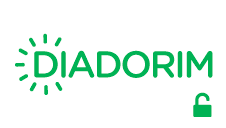Innovating payment as the determinant of emotional wellbeing
an activity theoretic perspective of contributions for language teacher identity construction
DOI:
https://doi.org/10.47677/gluks.v23i3.413Palavras-chave:
KEYWORDS: Payment, language teacher wellbeing, language teacher identity construction, activity theoryResumo
Despite the growth of research on language teachers’ emotional wellbeing and professional identity construction in recent years, little research has addressed how payment plays a role in these two constructs within the literature of TESOL teacher education. In response to this gap, the present study drew on the lens of activity theory and explored the role of payment in 15 Iranian English language teachers’ wellbeing and the associated implications for their professional identity construction. Data were collected from narrative frames and semi-structured interviews. The data were analyzed based on the principles of thematic analysis. Data analyses revealed three themes: (1) life quality and job commitment, (2) self-esteem and self-worth, and (3) cross-career comparison and lack of independence. Our findings imply that payment is perhaps one of the most significant yet underattended dimensions of the social turn in research on teachers and teacher education, which should receive more attention in the academe. Based on the findings, we provide implications for institutional policymakers to bring the issue of payment to the core and to the awareness of teachers so that the related interpersonal and conceptual tensions are resolved.
Downloads
Referências
Babic, S., Mercer, S., Mairitsch, A., Gruber, J., & Hempkin, K. (2022). Language teacher wellbeing in the workplace. Theory and Practice of Second Language Acquisition, 8(1), 11-34.
Bandono, A., Nugroho, S. H., Suharyo, O.S., & Susilo, A. K. (2022). The influence of salary, work facilities, and leadership factors on employee performance. Journal of Theoretical and Applied Information Technology, 100(21), 6311-6321.
Barahona, M. & Ibaceta-Quijanes, X. (2019). Neither fish nor fowl: the contested identity of teachers of English in an EFL context. RELC Journal, 1-17.
Barkhuizen, G. (2016). Narrative approaches to exploring language, identity and power in language teacher education. RELC Journal, 47(1), 25–42.
Barkhuizen, G., & Wette, R. (2008). Narrative frames for investigating the experiences of language teachers. System, 36, 372–387. https://doi.org/10.1016/j.system.2008.02.002
Buchanan, R. (2015). Teacher identity and agency in an era of accountability. Teachers and Teaching, 21(6), 700–719. https://doi.org/10.1080/13540602.2015.1044329
Clabaugh, G. K. (2009). Teacher merit pay: Is it a good idea? Educational Horizons, 88(1), 16-20.
De Costa, P. I., & Norton, B. (2017). Introduction: Identity, transdisciplinarity, and the good language teacher. The Modern Language Journal. 101(1), 3–14.
Ebadijalal, M., & Moradkhani, S. (2022). Understanding EFL teachers’ wellbeing: An activity theoretic perspective. Language Teaching Research, 0(0). 1-22.
Engestrom, Y. (1987). Learning by Expanding: An Activity-Theoretical Approach to Developmental Research. Orienta-Konsultit.
Engeström, Y. (1999). Innovative learning in work teams: Analysing cycles of knowledge creation in practice. In Y. Engeström, R. Miettinen, & R. Punamäki (Eds.), Perspectives on activity theory (pp. 377–406). Cambridge University Press.
Engeström, Y. (2015). Learning by expanding: An activity-theoretical approach to developmental research. Cambridge University Press
Gregersen, T., Mercer, S., MacIntyre, P., Talbot, K., & Banga, C. A. (2020). Understanding language teacher wellbeing: An ESM study of daily stressors and uplifts. Language Teaching Research, 1-22.
Herrera, L. J.P. & Martínez-Alba, G. (2022). Emotions, well-Being, and language teacher identity development in an EFL teacher preparation program. Korea TESOL Journal, 18(1), 1-25
Herrera, L.J., Martínez-Alba, G., & Trinh, E. (2022). Teacher well-being in English language teaching: An ecological approach. Routledge.
Hofstadler, N., Babic, S., Lämmerer, A., Mercer, S. & Oberdorfer, P. (2020). The ecology of CLIL teachers in Austria – an ecological perspective on CLIL teachers’ wellbeing, Innovation in Language Learning and Teaching, 15(3), 218-232.
Jin, J., Mercer, S., Babic, S., and Mairitsch, A. (2020). You just appreciate every little kindness: Chinese language teachers’ wellbeing in the UK. System, 96, 18-60. 102400–102412. https://doi.org/10.1016/j.system.2020.102400
Karimi, M. N., & Mofidi, M. (2019). L2 teacher identity development: an activity theoretic perspective. System, 81, 122–134.
Kayi-Aydar, H. (2021). A framework for positioning analysis: From identifying to analyzing (pre) positions in narrated story lines. System, 102
Leont’ev, A.N. (1978). Activity, consciousness, and personality. Prentice Hall.
Liu, L., Song, H. & Miao, P. (2017): Navigating individual and collective notions of teacher wellbeing as a complex phenomenon shaped by national context, Journal of Comparative and International Education, 48(7), 1-19.
Mann, S. (2016). The research interview: Re?ective practice and re?exivity in research processes. Palgrave Macmillan
Mercer, S. (2018). Psychology for language learning: Spare a thought for the teacher. Language Teaching, 504–525.
Mercer, S. (2021). An agenda for well-being in ELT: an ecological perspective. ELT Journal, 75(1). 14-21.
Pham, L. D., Nguyen, T. D., & Springer, M. G. (2021). Teacher merit pay: A meta-analysis. American Educational Research Journal, 58(3), 527-566. https://doi.org/10.3102/0002831220905580
Podgursky, M., & Springer, M. (2011). Teacher compensation systems in the United States K–12 public school system. National Tax Journal, 64(1), 165–192. https://doi.org/10.17310/ntj.2011.1.07
Ruohotie-Lyhty, M., Aragao, C. R., Pitkanen-Huhta, A. (2021). Language teacher identities as socio-politically situated construction: Finnish and Brazilian student teachers’ visualizations of their professional futures. Teaching and Teacher Education, 100, 1-11.
Ryan, R. M., & Deci, E. L. (2001). On happiness and human potentials: a review of research on hedonic and eudaimonic well-being. Annual Review of Psychology. 52, 141–66.
Sulis, G., Mercer, S., Babic, S., & Mairitsch, A. (2023). Language teacher wellbeing across the career span. Multilingual Matters.
Talbot, K., & Mercer, S. (2018). Exploring University ESL/EFL Teachers’ Emotional Well-Being and Emotional Regulation in the United States, Japan and Austria. Chinese Journal of Applied Linguistics, 41(4), 410–432.
Toraman, Ç., & Korkmaz, G. (2022). The great barrier to teaching profession: Technicism, rethinking the meaning of professionalism through teachers’ experience. International Online Journal of Education and Teaching (IOJET), 9(1). 486-505.
Vygotsky, L.S. (1978). Mind in society: The development of higher psychological processes. Harvard University Press.
Yazan, B., & Lindahl, K. (Eds.). (2020). Language Teacher Identity in TESOL: Teacher education and practice as identity work. Routledge.
Zhao, Q. (2022). On the Role of Teachers’ Professional Identity and Well-Being in Their Professional Development. Frontiers in Psychology. 13, 1-4.
Downloads
Publicado
Como Citar
Edição
Seção
Licença
Copyright (c) 2024 Gláuks - Revista de Letras e Artes

Este trabalho está licenciado sob uma licença Creative Commons Attribution 4.0 International License.














